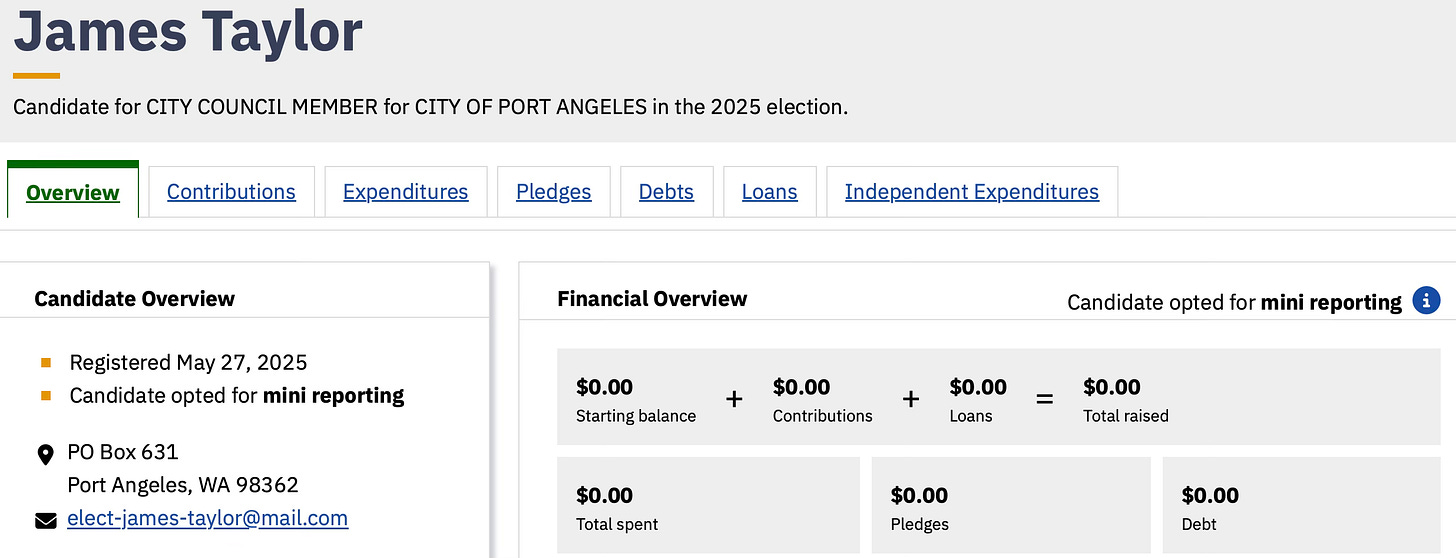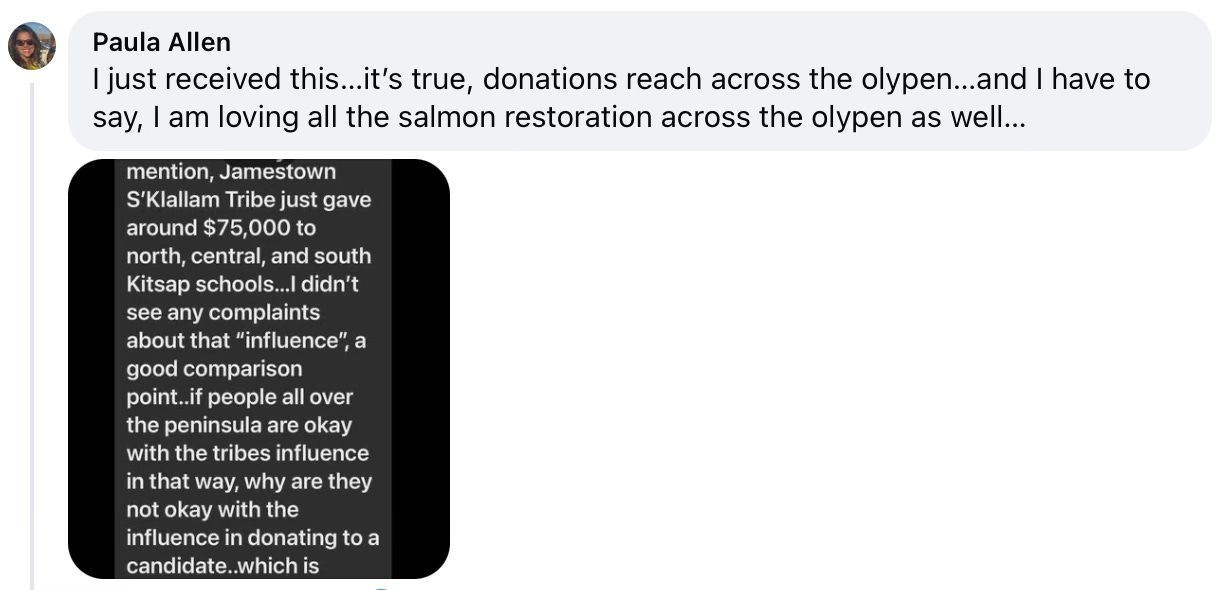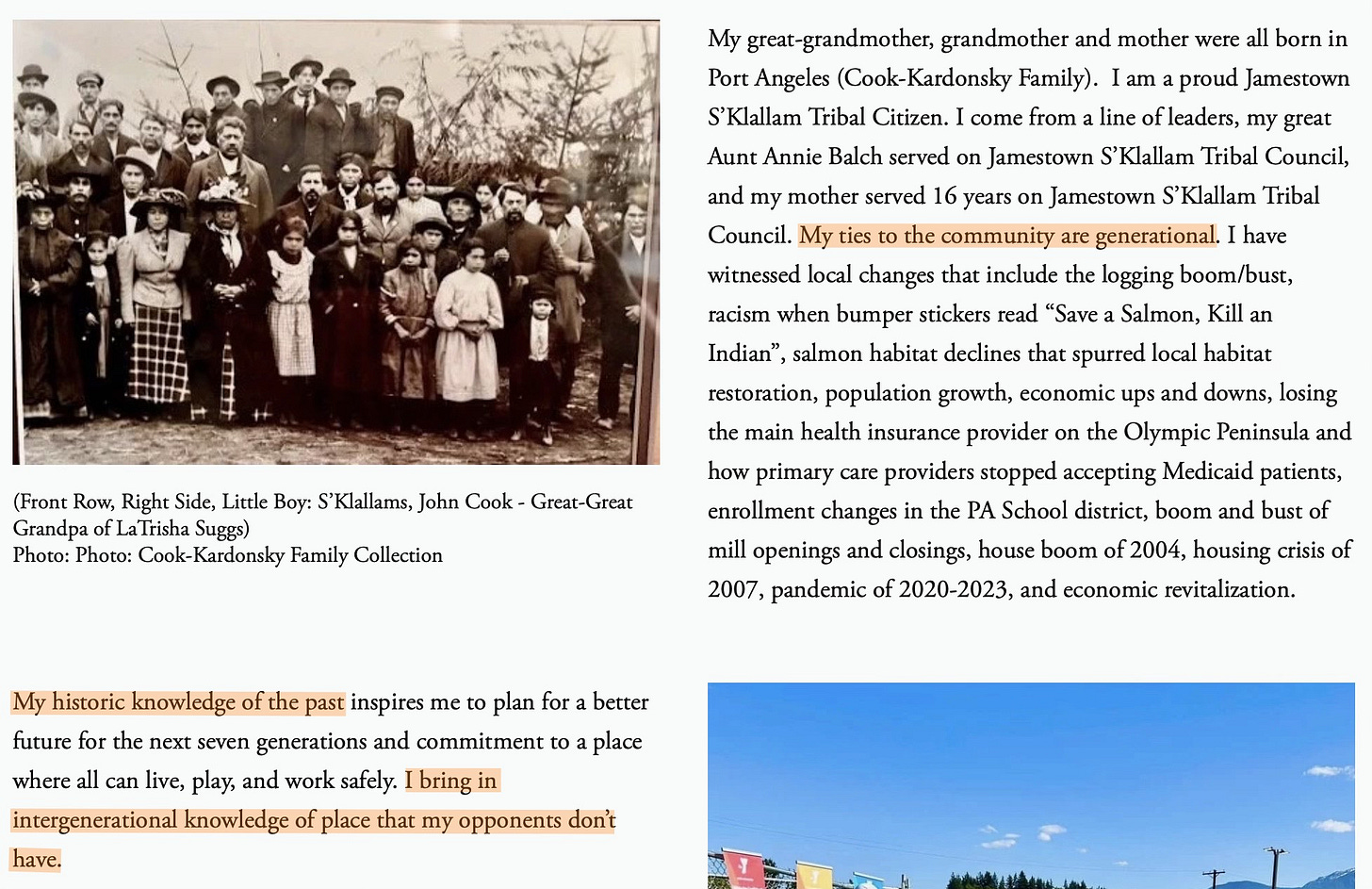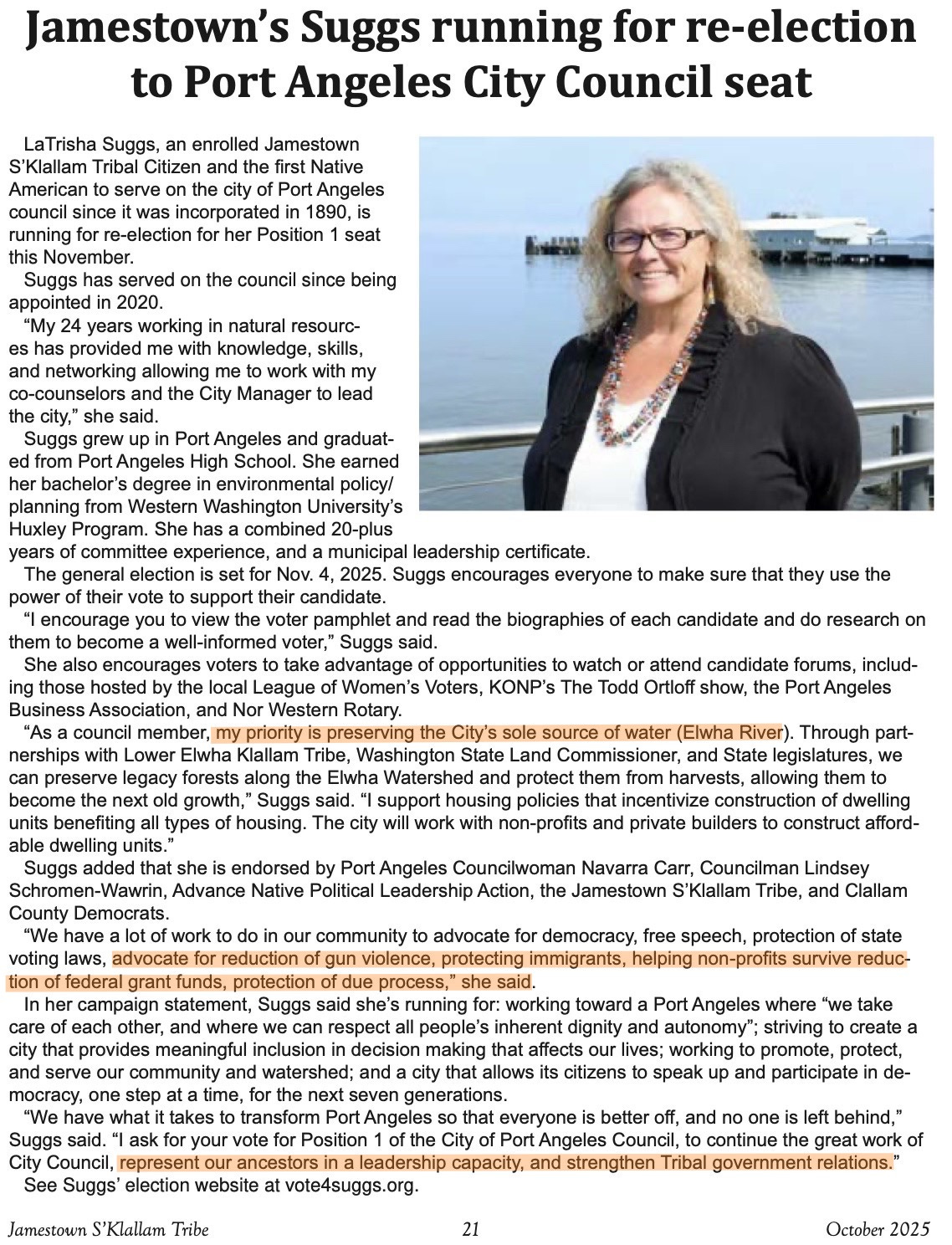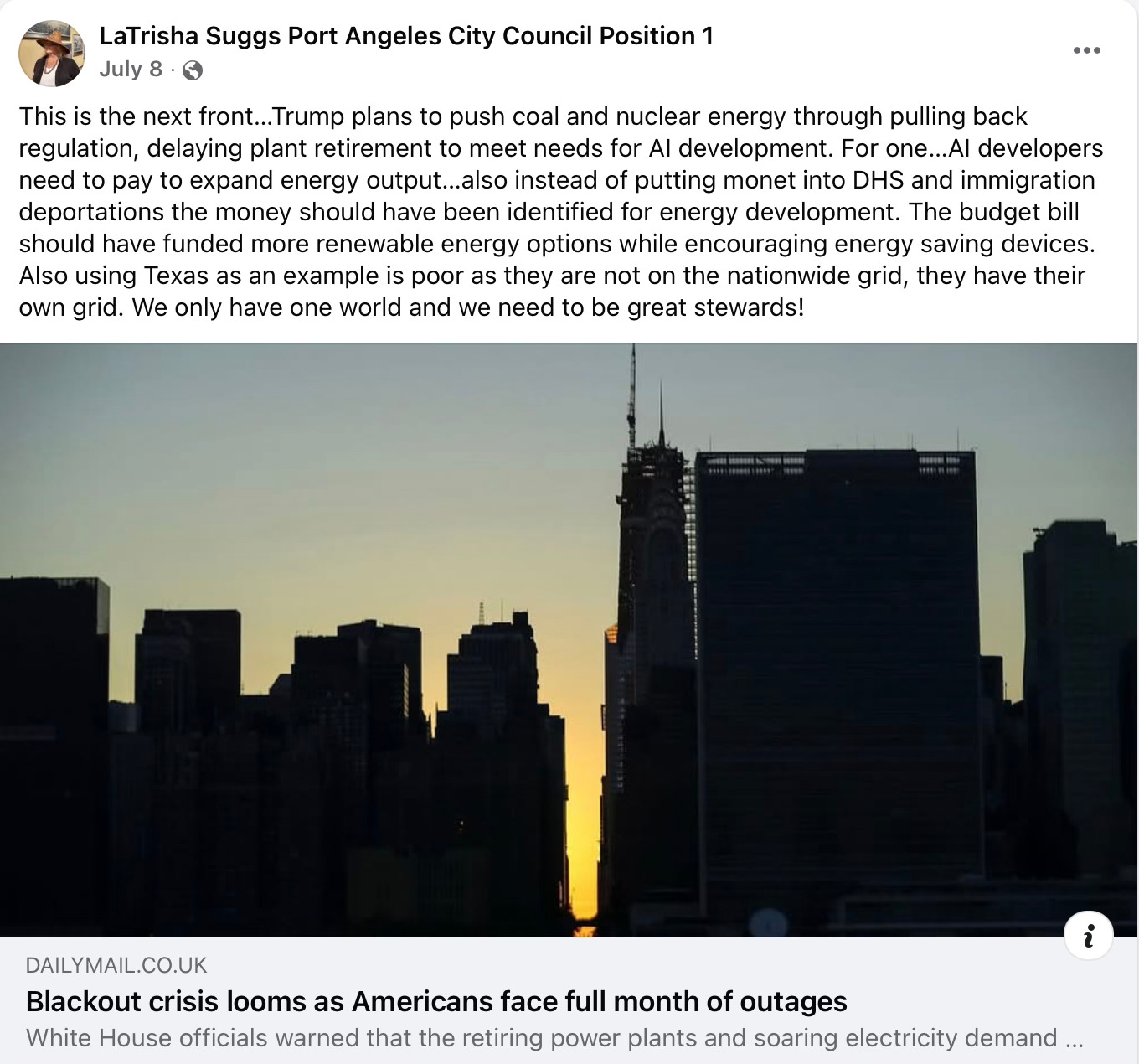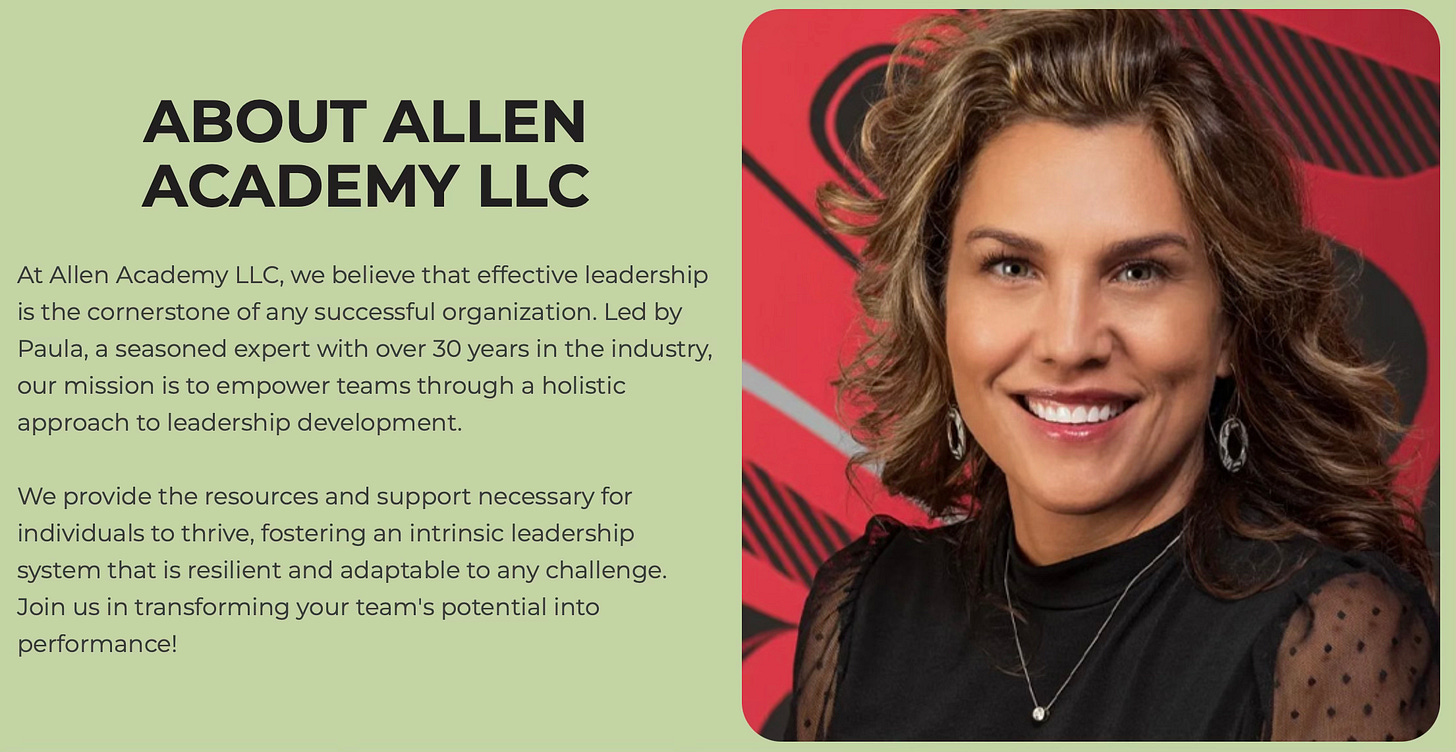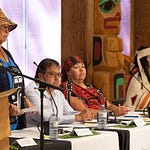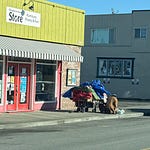Public frustration is rising in Port Angeles after revelations that City Councilmember LaTrisha Suggs’s reelection campaign is heavily financed by special interests and the Jamestown Corporation. Tribal official Paula Allen has leapt to her defense — not by addressing policy, but by invoking family lineage and heritage. In a city losing industry, jobs, and trust, residents are asking why representation seems to serve the few instead of the many.
Social media erupted last month after it was revealed that Port Angeles City Councilmember LaTrisha Suggs’s campaign for reelection is being bankrolled by Seattle-based activists and special interest donors, alongside a major contribution from the Jamestown S’Klallam Tribe.
While many residents voiced concern about the growing influence of outside money and sovereign interests in local races, others defended Suggs. One commenter wrote:
“I think living in a tribal community, representation matters. Her voice is needed… Did we look at where all the candidates get their money or just the native woman?”
That question was easily answered: Suggs’s opponent, James Taylor, has reported $0.00 in campaign funding, according to the Public Disclosure Commission. The funding imbalance is clear — and it highlights how far removed local elections have become from grassroots democracy.
Defending Influence Through Ancestry
Among Suggs’s loudest defenders is Paula Allen, Director of Leadership Development and Guest Services for the Jamestown S’Klallam Tribe and 7 Cedars Resort. The Tribe — which donated significantly to Suggs’s campaign — is a sovereign nation that operates businesses exempt from many local and state taxes, yet has become increasingly active in shaping local politics.
Allen publicly defended the Tribe’s involvement, writing:
“It’s true, donations reach across the olypen…and I have to say, I am loving all the salmon restoration across the olypen as well…”
“Jamestown S’Klallam Tribe just gave around $75,000 to north, central, and south Kitsap schools...I didn’t see any complaints about that ‘influence.’”
But the comparison doesn’t hold up.
The Tribe’s charitable giving — while commendable — comes without paying property, sales, and excise taxes that fund those same public services. Their “contributions” amount to a small fraction of what other businesses and residents are required to pay.
As one commenter put it:
“I’ll give $5,000 to schools this year. It’s through my property tax. Where are the accolades for taxpayers who support our schools every single time they pay property taxes?”
Allen’s reply — “Good for you! Me too, before I sold my home!” — struck many as dismissive. People aren’t asking for praise. They’re asking for a level playing field and leaders who serve everyone, not just those with tax-exempt status or political connections.
When Heritage Becomes a Shield
Allen later doubled down, writing:
“I’ve been told you all are not worth my time… my ancestors took care of this land and so will I…. where did your ancestors walk? Do you even know?”
That comment echoed the same theme running through Suggs’s own campaign — that ancestral roots grant special insight or legitimacy to govern.
In her campaign materials and a feature published in the Jamestown Tribe’s monthly newsletter, Suggs emphasizes her heritage as a Jamestown S’Klallam citizen, claiming “intergenerational knowledge” as a unique qualification for city leadership.
But after years on the City Council, the city’s condition tells another story:
The Mckinley Paper Mill closed, cutting one of the last major industrial employers and losing nearly 200 jobs.
Platypus Marine — a major ship repair and marine business — is locked in an expensive legal battle with the city over its treatment of local industry.
Downtown businesses continue to struggle, and crime remains a growing concern.
The record doesn’t show ancestral wisdom improving Port Angeles — it shows a city in decline while leadership focuses on lineage, symbolism, and special interests.
A Council Focused on the Wrong Priorities
In her official campaign statement, Suggs outlines her top priority:
“As a council member, my priority is preserving the City’s sole source of water (Elwha River). Through partnerships with the Lower Elwha Klallam Tribe, Washington State Land Commissioner, and State legislatures, we can preserve legacy forests along the Elwha Watershed and protect them from harvests…”
Protecting the Elwha watershed may be admirable, but for most residents, the crisis isn’t in the forest — it’s in the economy, housing, and public safety.
Instead of focusing on job creation or rebuilding the city’s tax base, Suggs has aligned Port Angeles policy with tribal and state environmental agendas — and even national debates over gun control, immigration, and energy. These hot-button issues may win points with political allies, but they do little to address the day-to-day realities of working families.
Even Suggs’ closing line —
“to represent our ancestors in a leadership capacity, and strengthen Tribal government relations”
Suggests her loyalty lies more with her sovereign nation than with the voters who pay city taxes.
That’s not representation — that’s conflict of interest.
The Allen Dynasty — and the Leadership Paradox
The connection between Suggs and Allen extends beyond social media. The Jamestown Tribe’s September 2025 newsletter dedicates six pages in announcing that the upcoming Honoring Our Elders Luncheon will celebrate the Allen family — including Ron Allen, Jerelyn Allen (Paula Allen’s mother), Jeff Allen, Jerry Allen, and Robin Allen — for their “many contributions” to the Tribe and community.
Ron Allen is the CEO of the Jamestown S’Klallam Tribe, one of the most powerful figures in the region.
Paula herself serves as Director of Leadership Development and Guest Services for the Tribe and 7 Cedars Resort, and also runs a business called Allen Academy LLC, which promotes “holistic leadership” and “empowering teams through resilience and adaptability.”
According to her company’s website:
“At Allen Academy LLC, we believe that effective leadership is the cornerstone of any successful organization… Our mission is to empower teams through a holistic approach to leadership development.”
That philosophy sounds admirable — but it clashes sharply with Allen’s online conduct.
Instead of modeling inclusive, thoughtful leadership, she has belittled residents raising legitimate questions about fairness, dismissed concerns over political influence as ignorance, and invoked ancestry and privilege rather than accountability or dialogue.
For someone who teaches “transformational leadership,” it’s a striking contradiction — a case study in how titles and slogans mean little without humility, respect, or results.
The Bigger Picture
Port Angeles residents deserve leaders who focus on jobs, fairness, and accountability — not those who use ancestry or privilege as a shield against criticism.
When campaign money comes from tax-exempt sovereign entities, and when allies in those same organizations use heritage as political justification, the line between public service and private agenda gets blurred.
Leadership isn’t about who walked here first. It’s about who’s walking beside the people now — taxpayers, workers, and families trying to keep this city alive.




